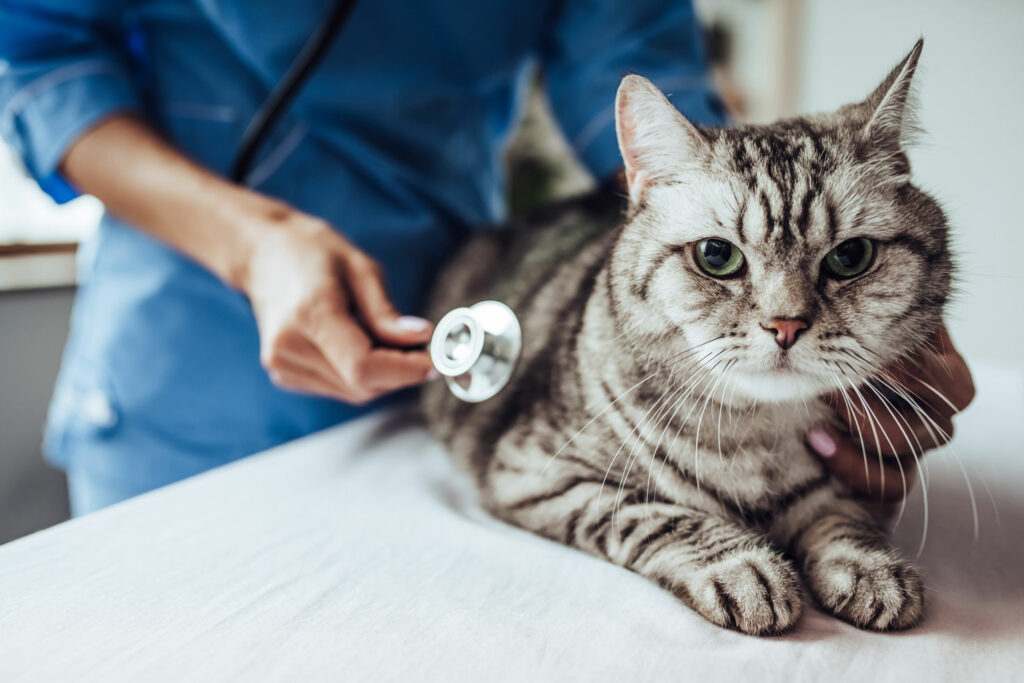
Chronic Kidney Disease (CKD) in Cats
Chronic Kidney disease is one of the most common diseases of cats, usually occurring in cats aged 7 and over. Cats, like most mammals, have 2 kidneys located just under the lower spine. The kidneys filter and remove waste products from the blood. Chronic Kidney Disease (CKD) is diagnosed when the kidneys have been damaged and are no longer filtering the blood as effectively. Often this disease is the result of ageing, though at times a specific cause may be identified.
Signs of CKD
The signs of CKD may develop slowly but usually include;
- Drinking and urinating more than usual (because the kidneys are not concentrating urine effectively)
- Weight loss
- Loss of appetite, weakness and lethargy
- Dehydration
- Dull, matted coat and reduced interest in grooming
- Sleeping more than usual
- Bad breath
Diagnosing CKD
Vets diagnose CKD via blood tests, urine tests and blood pressure testing. Sometimes ultrasound of the kidneys and abdomen will be recommended.
Treatment
Treatment of CKD is targeted to manage the disease and keep your cat living a full happy and healthy life. The rate of progression of disease can be very variable, therefore, we tailor the treatment to suit your own cat’s specific needs. Since dehydration is a risk for cats with chronic kidney disease it is important to ensure they always have free access to fresh water.
To increase your cat’s water intake you can: place multiple water bowls throughout the house, add extra water into your cat’s food, feed a wet diet, have a cat drinking fountain.
We may recommend a diet change specifically designed for your cat. This often includes reducing the protein and phosphorus content in the diet. This will help to prevent ongoing kidney damage or the build up of excess waste products in the blood. Unfortunately, your cat may find this diet to be less palatable, and thus it is important to change the diet gradually. Start by mixing a small amount into your cat’s regular food and increase the amount over the next few days or weeks. If your cat is very fussy about its food this may be difficult, your vet may be able to provide further assistance with this transition.
It is very important that your cat is assessed regularly by your veterinarian. Ongoing recommendations or additional treatments may be provided. Overall, the welfare of your cat is most important. By managing chronic kidney disease, we can ensure your cat continues to live a full, happy and healthy life.
